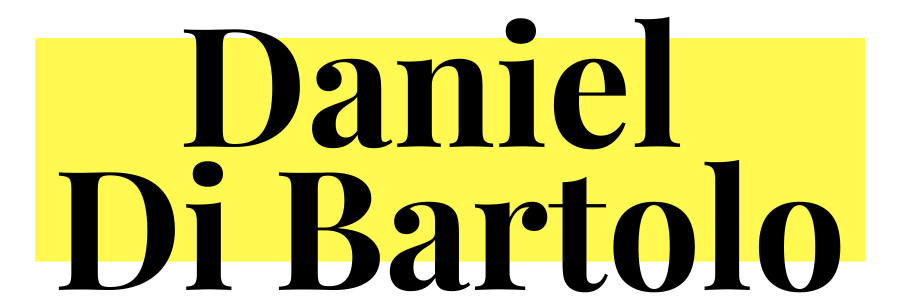7 tips for building awesome products from Roman Mars
Here are 7 principles for building awesome products from Roman Mars.

I can remember the first time I heard 99% Invisible.
I was on a road trip, my phone full of new music and podcasts.
With the window down, wind in my hair, and nothing but hours of open road ahead of me — I hit play.
“This is 99% Invisible. I’m Roman Mars.”
I can’t actually remember what that first episode was about, (there are over 300 episodes on cities, architecture, infrastructure, and the design of everyday things) but I remember hitting play again and again.
Roman Mars, aside from having the coolest name in podcasting (sorry Ira), is probably most widely known for his excellent (and nerdy) TED Talk on city flag design. It inspired dozens of cities to design new flags, including my own.
With a cult following and over 250 million downloads, 99pi is a podcast with fans in every conceivable industry and niche.
Lots of my friends in the design and product space love this show.
According to their website, “99pi is about all the thought that goes into the things we don’t think about — the unnoticed architecture and design that shape our world.”
It’s super interesting. If you’ve never listened, stop reading and check it out.
Let’s talk about craft
Recently, after giving some talks at TED about podcasting, Roman Mars posted a tweet storm about excellence in storytelling and podcasting.
As a product manager, I’m hungry to learn. Though his tweets were about audio/podcasting specifically, I think there’s some great ideas there that apply to craft in general — and product management is certainly a craft.
Let’s talk about how his thoughts on podcasting can make us better product managers.
Love your users
Fall in love with your subject’s voice.
— Roman Mars (@romanmars) April 13, 2018
To make a great product you need to love your users. You need to understand them. You need to empathize with their fears and understand their goals. You have to hold their best interests at heart, solving their problems and making their life easier and more delightful through technology.
Your customers can tell when you don’t really love them.
You’ll cut corners.
You’ll ship buggy software or breaking changes.
You’ll shake them down for more money while providing less value.
Don’t do that.
Love them instead.
Don’t take yourself too seriously
Do at least one thing that makes you laugh or really pleases you in the piece.
— Roman Mars (@romanmars) April 13, 2018
One of my favorite examples of this is the infamous Wordpress.com “howdy”.
Here’s what I’m talking about:

Who says “howdy” anymore? It’s ridiculous. It’s funny. It’s a little weird.
But it’s also memorable.
The team at Medium has fun with their release notes. Anybody who has to write release notes knows how boring they can be. Medium blows everybody else out of the water with their long, narrative, hilarious release notes.
Have a little fun the next time you ship a product or feature.
Simple is better
Speak plainly. If you stumble on a word or phrase a lot, rewrite it.
— Roman Mars (@romanmars) April 13, 2018
Mark Twain said “Don’t use a five-dollar word when a fifty-cent one will do.”
If there’s an easy way, do that.
Don’t over-engineer a problem that a simpler design would solve.
Don’t reinvent the wheel. Solve a UX problem once and then use it over and over again until it breaks.
When it breaks, it probably needs a simpler solution. Or something more complex.
These things are complicated.
Cut stuff out
Edit.
— Roman Mars (@romanmars) April 13, 2018
When you design something, it’s never right the first time. Almost anything you plan or build isn’t ready after your first pass.
It can always be faster.
It can always be lighter.
It can always be more potent and helpful to your users.
It takes humility to cut away some of your best ideas.
Tight feedback loops
Edit again.
— Roman Mars (@romanmars) April 13, 2018
There’s an old proverb that says “Where there is strife, there is pride, but wisdom is found in those who take advice”.
Feedback is hard. Presenting your work in front of others takes a lot of guts. Sometimes people don’t like your stuff. They might even tell you that.
Feedback — early and often, exposes our blind spots.
It exposes gaps in our knowledge of and empathy with our users.
Humility is an important trait in product people because it opens you up to learn from others.
This is especially important early in the design process. Get feedback from real users as soon as you can — I prefer to start with low fidelity wireframes if I can.
In the long run you’ll be better for it.
Steal the best parts
Listen to a lot of audio stories and steal the best parts. Even if you try to do it exactly like someone else, you won’t be able to, and you’ll create something new.
— Roman Mars (@romanmars) April 13, 2018
If your job is to build mobile apps — use a lot of mobile apps. Pick some favorites. Think about how they make you feel and why you like them. Take notes.
Enjoy the best products in your space. Learn from them.
Imitate until you find your own voice.
With great scale comes great responsibility
If you’re lucky, you’ll grow.
If you’re any good and can distribute well, you may even grow really fast — to the point where VCs will throw other people’s money at you.
If you can shave 1 second of your startup time with with 500,000 DAUs, you’ve just saved people 138 hours.
If you have a crash that impacts 1% of your DAUS, you just pissed off 5,000 people. 5,000 pissed off people is a lot of people.
When you get big, you leave behind your small problems and replace them with big problems.
That also means you’re helping a lot more people.
If you help more people than you pissed off, that’s a good day.
